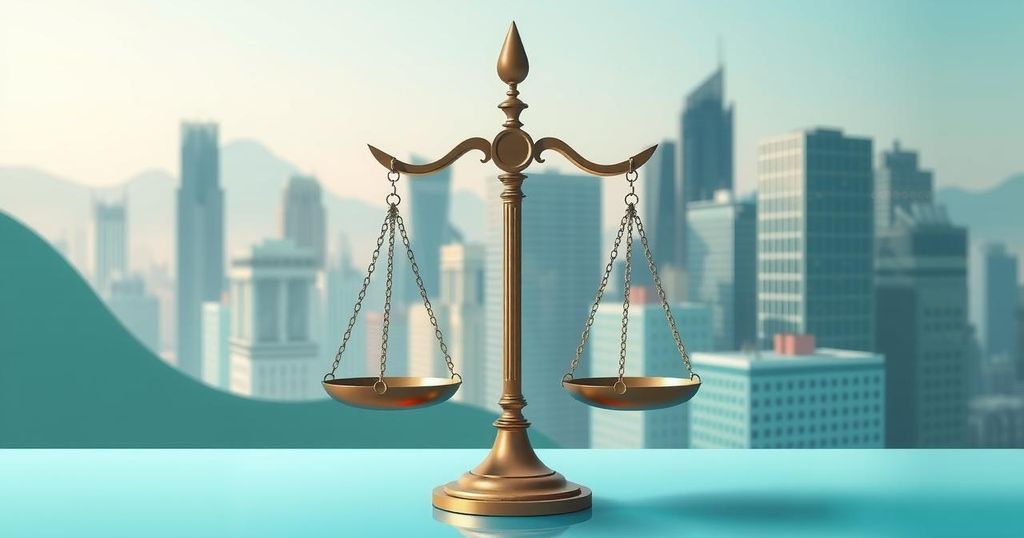Global news
AGENCY FOR STATE SECURITY, AMAL MOVEMENT, AOUN, AQTANIT, ASIA, DIPLOMACY, EDGAR LAWANDOS, FINANCE MINISTRY, HASSAN CHOUCAIR, HEZBOLLAH, INTERNAL SECURITY FORCES, LEBANON, MIDDLE EAST, NORTH AMERICA, RAE, REGIONAL SECURITY, RUDOLPH HAYKAL, SANCTIONS, SECURITY, SIDON, SOUTH LITANI, UNITED STATES
Isaac Bennett
0 Comments
Lebanon Appoints New Security Chiefs, Reducing Hezbollah Influence
The Lebanese government appointed new security chiefs, signaling a move away from Hezbollah’s influence. Key positions filled include Gen. Rudolph Haykal as army chief and Brig. Gen. Hassan Choucair as head of general security. President Joseph Aoun emphasized accountability and the importance of restoring confidence in Lebanon. Discussions regarding prisoner releases and border negotiations with Israel were also highlighted.
The Lebanese government has appointed new security chiefs, indicating a shift away from Hezbollah’s influence. The new leaders include General Rudolph Haykal as army chief, Brigadier General Hassan Choucair overseeing general security, Brigadier General Raed Abdullah leading the Internal Security Forces, and Brigadier General Edgar Lawandos in charge of state security. Although Hezbollah proposed Brigadier Morshed Suleiman for a leadership role, the president and prime minister appointed him as deputy director general of state security instead.
President Joseph Aoun, who led the Cabinet meeting, expressed his satisfaction with the professional backgrounds of the new appointees but emphasized their accountability. He highlighted that restoring both internal and external confidence in Lebanon is crucial, requiring reforms in various sectors, including the economy and banking. The president also indicated that the International Monetary Fund (IMF) delegation urged the completion of a program agreement, stressing the urgency of several prerequisites, notably appointing a new central bank governor.
Aoun has stated that Lebanon’s security and defense forces remain vigilant in monitoring developments in Syria along Lebanon’s borders. Following their appointments, the new security leaders met with the president at the Presidential Palace. Haykal, previously an army operations director, is prepared to address challenges such as completing army deployments and enhancing collaboration with UNIFIL to implement Resolution 1701.
Choucair, coming from the Lebanese Intelligence Directorate, has extensive experience in counterterrorism and has helped coordinate security efforts. Abdullah possesses considerable operational expertise, particularly in managing complex security matters post-ISIS. Lawandos has actively participated in enforcing ceasefire measures and Resolution 1701 on behalf of Lebanon.
In related news, the Israeli army recently released Lebanese soldier Ziad Chebli after he was abducted. President Aoun noted that the release resulted from indirect negotiations. Furthermore, four Lebanese detainees were freed following Hezbollah’s commitment for compliance with ceasefire protocols, although reports indicate that numerous individuals remain incarcerated.
Deputy Premier Tarek Mitri categorically denied any plans for Lebanon to normalize relations with Israel while discussing ongoing border negotiations. A military source remarked that Lebanon is establishing committees to address disputed points with Israel without implying direct negotiations, stating that discussions focus on aspects like the Israeli occupation and the status of prisoners held by Israel.
Despite Israel’s actions, Mitri reinforced Lebanon’s steadfast position amid claims of a broader plan for normalization. As these developments unfold, Lebanon continues to assert its authority and prioritize its national security interests.
The recent appointments by the Lebanese government signify a decisive shift away from Hezbollah’s influence, marking a potential turning point in Lebanon’s security landscape. The new security chiefs bring diverse experience and expertise necessary for addressing various internal and external challenges. Additionally, ongoing discussions regarding prisoner releases and border disputes reflect the complex dynamics of Lebanon’s relations with Israel, emphasizing the nation’s resilience and commitment to sovereignty.
Original Source: www.arabnews.com




Post Comment